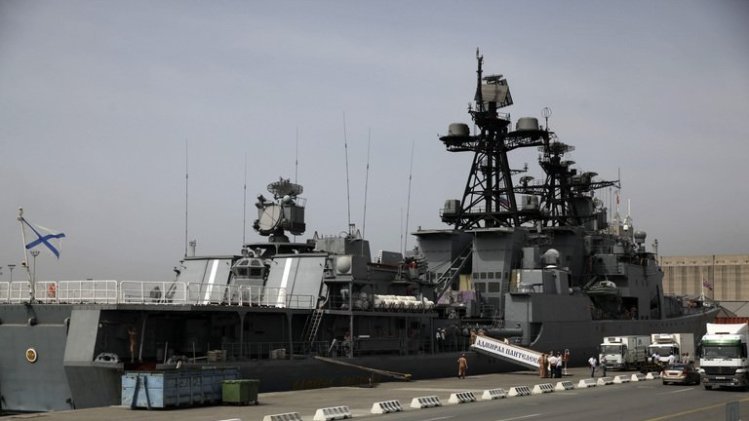Russian warships cross Bosphorus, en route to Syria

A Russian warship is moored in the
Cypriot port of Limassol, on May 17, 2013. Three Russian warships have
crossed Turkey's Bosphorus Strait en route to the eastern Mediterranean,
near the Syrian coast, amid concern in the region over potential US-led
strikes in response to the Damascus regime's alleged use of chemical
weapons. (AFP Photo/Yiannis Kourtoglou)
-
The SSV-201 intelligence ship Priazovye, accompanied by the two landing ships Minsk and Novocherkassk passed through the Bosphorus known as the Istanbul strait that separates Asia from Europe, an AFP photographer reported.
The Priazovye on Sunday started its voyage from its home port of Sevastopol in Ukraine "to the appointed region of military service in the eastern Mediterranean", a military official told the Interfax news agency.
-
Russia, a key ally of Damascus, has kept a constant presence of around four warships in the eastern Mediterranean in the Syrian crisis, rotating them every few months.
It also has a naval base in the Syrian port of Tartus whose origins date back to Moscow's close relationship with Damascus under the Soviet Union.
-
Moscow vehemently opposes the US-led plans for military action against the regime of Syrian President Bashar al-Assad in response to the chemical attack outside Damascus last month.
-
Russian President Vladimir Putin warned on Wednesday that any US Congress approval for a military strike against Syria without UN consensus would represent an "aggression".





